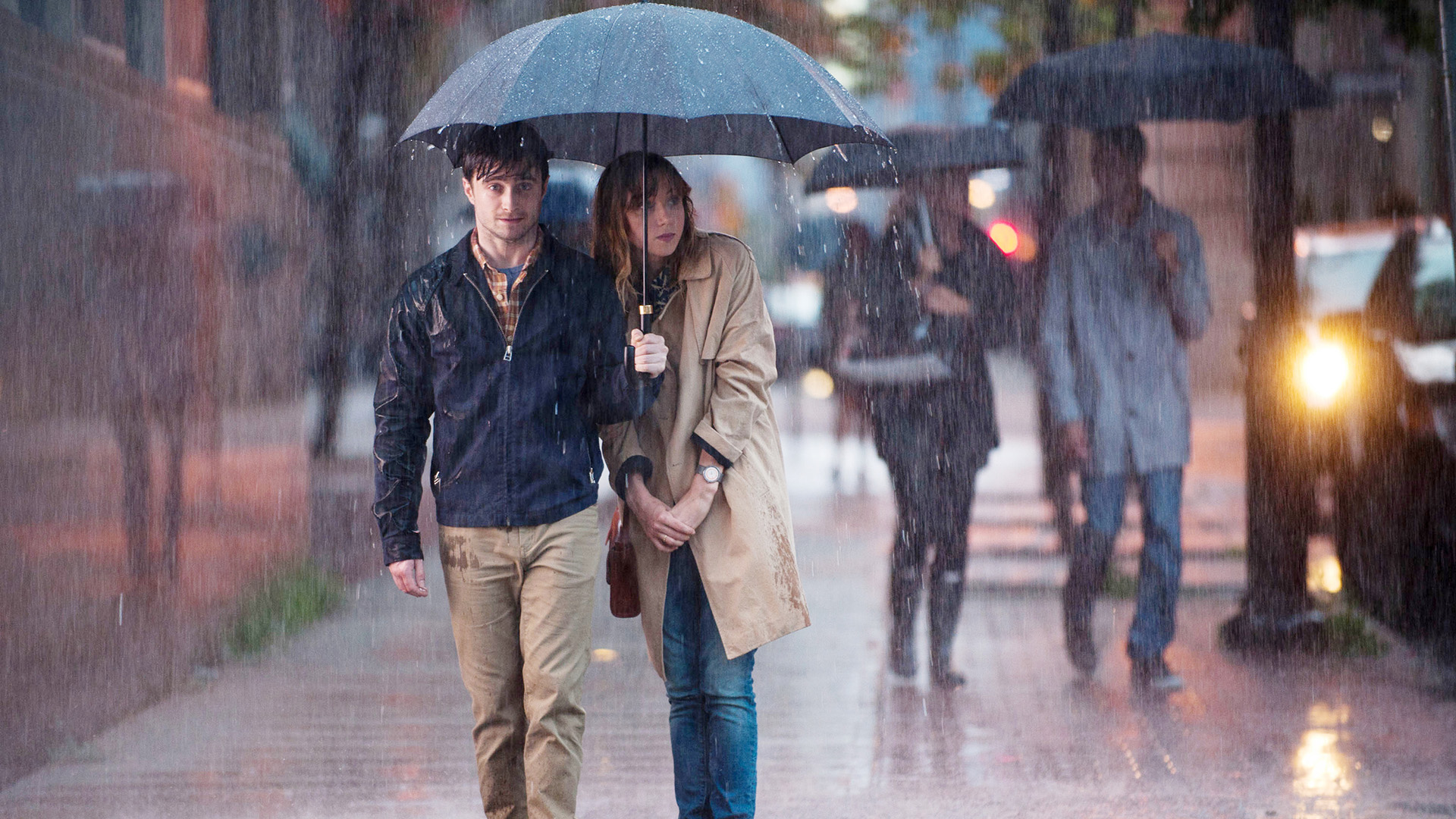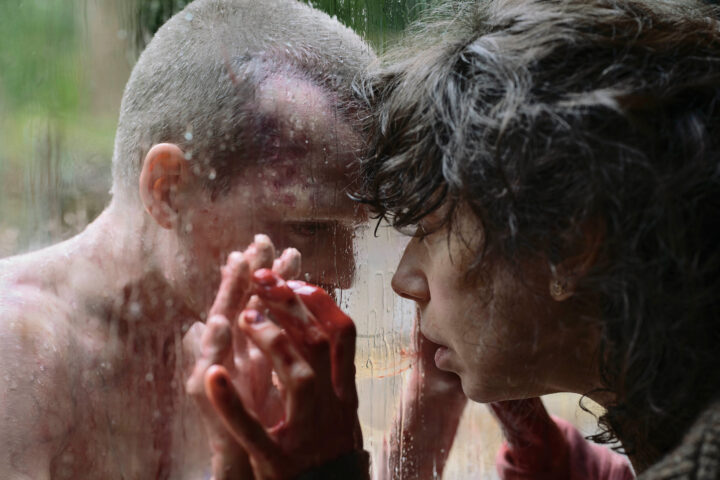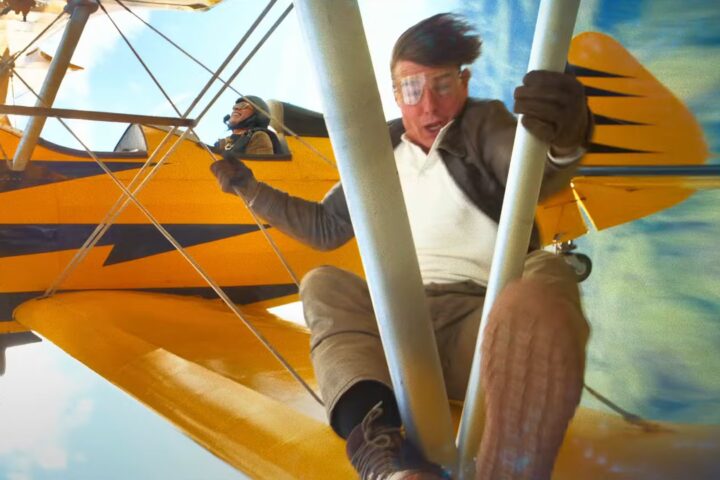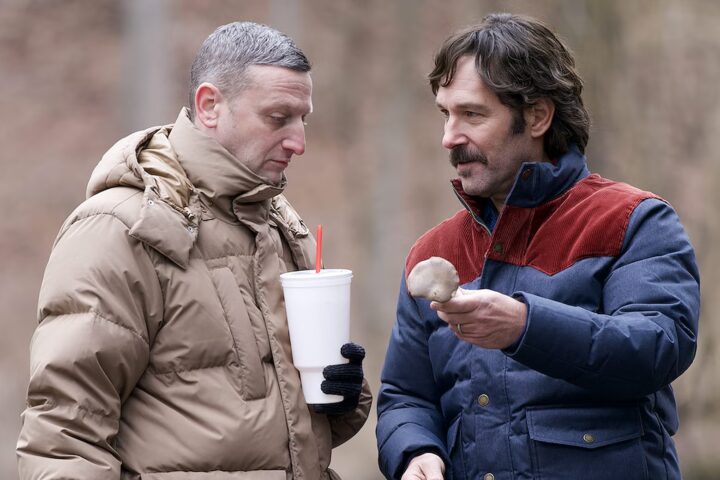When writing a screenplay intended to be “offbeat,” it’s probably not a good idea to employ a shopworn and predictable plot, as is the case with the untenable new romantic “comedy” What If, starring a pair of otherwise accomplished actors playing exactly two conditions—haplessly befuddled and manically pixie—right to the hilt, and right to a predictably cornball final scene.
Daniel Radcliffe and Zoe Kazan star as two young Toronto lovelorns who forge an unexpected relationship culled right from When Harry Met Sally. How’s that for timely? He’s single and on the rebound, and spends his evenings pining alone on the rooftops; she’s coupled, living with one of those off-the-shelf movie characters, the snide boyfriend too concerned with his career to notice her (the question is always why a bright woman would tolerate an obvious jerk if an idiot plot didn’t require such).
Because of this quagmire, they must remain but friends. Right. Yet as we know from their first scene, this love story has been all but preordained (not by the stars, but by Final Draft), one told with hipster-fake dialogue and cutesy contrivances, like one whopper where they end up sans clothes and in the same sleeping bag on a beach (not kidding). Such hijinks are employed while both are blind to the fact that the other actually likes them. Big surprise.
Adapted for the screen by Elan Mastai from a Canadian play but TJ Dawe and Mike Rinaldi, the meet cute happens when Radcliffe’s medical school dropout Wallace (Radcliffe) wanders into a party to encounter Kazan’s animator Chantry (see what I mean?). They have instant chemistry, but after flirting with him all the way home, she drops a bomb that she has a boyfriend—and immediately the film loses us, handing us a young woman as game player, then asking us to believe that she really does intend mere friendship. Huh?
Said inconvenient boyfriend (Rafe Spall) is not only a prig but a buffoon as well, and a bit of unfunny slapstick actually has him thrown out of a window by a swinging door. That’s right. He’s quickly moved overseas for business, clearing the way for the budding “friendship” to develop between Wallace and Chantry, one piqued with self-consciously written dialogue the likes of which has been said but no one, anywhere, ever, as they take us on a tour of Toronto, in all regards a great city but depicted here as little more than a blandly generic backdrop.
The deathblow to the picture is the complete turn-off of the supporting cast, namely two actors so certain they are bringing the belly laughs as to be distasteful, and they are played by Adam Driver, whom I hope not to see in a movie again, and Mackenzie Davis, a willowy blonde playing a character with a hyperactive libido and annoyingly affected cadence. Charming. Driver is Radcliffe’s best friend—think Jim Belushi in About Last Night, only with greater calculation and less inspiration. Their scenes are the nadir of the film, nevermore than during impromptu wedding speechifying and an embarrassing moment where a drunk Driver (playing drunk, broadly) shouts obscenities to senior citizens on a golf course. Not funny in concept or execution.
Radcliffe is fine as it goes, but the star is Kazan, with her wonderfully expressive eyes and ability to pull heartstrings (both her costars and ours), here saddled with a role that feels, at times, like a watered down version of the goofy Tiffany Maxwell in Silver Linings Playbook, a verbosely charming and off-kilter arty chick with a killer haircut and whip smart sense of humor, apparently the smartest person in the room but unable to see her own romantic feelings. The actress, who wrote and starred in 2012’s Ruby Sparks, remains interesting even when her character makes little sense, like a final reel scene in a diner where Chantry chastises Radcliffe with a high degree of disingenuousness. Kazan knows the character is full of it, Radcliffe does and so do we.
Awkwardly shoehorned into the picture are periodic animation sequences designed for “whimsy,” an at-times sweet score by A.C. Newman and a fairly amusing performance from Megan Park as Kazan’s on-the-make sister.
But why this sub-marginal romcom has garnered some positive notices given its obviousness and pushiness—the jokes aren’t funny and they are sold hard—is beyond explanation.
A smart actress alone does not a good movie make, and I didn’t believe a minute of this predictable quirkfest.
1 1/2 stars.



